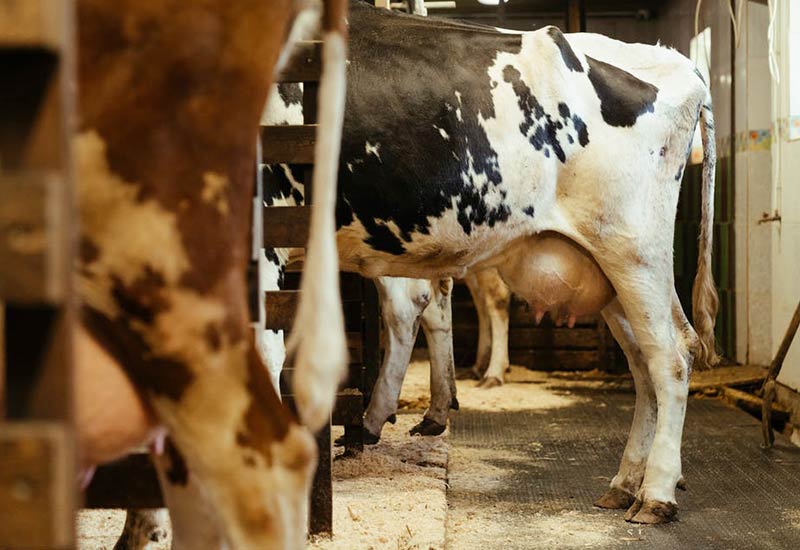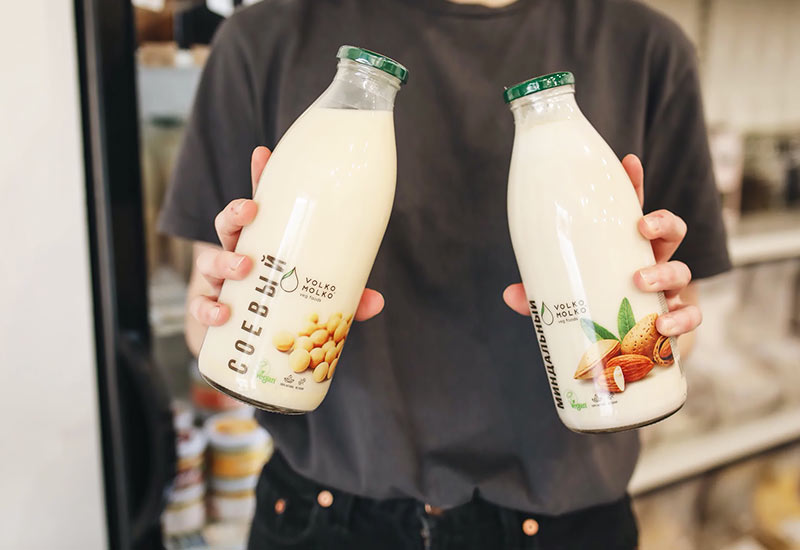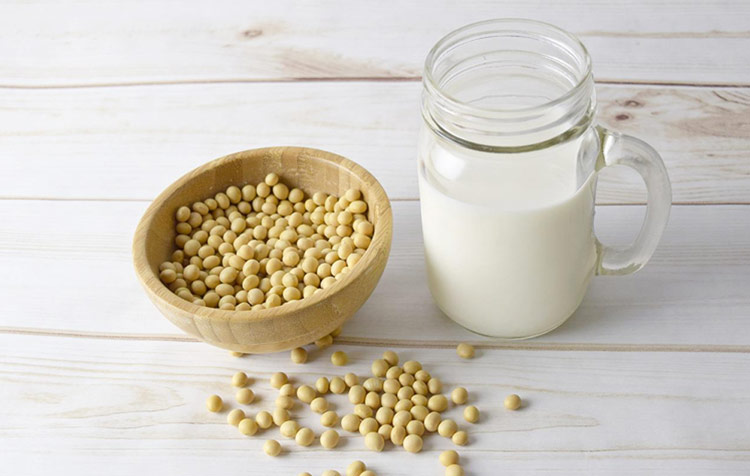Are all vegan foods automatically lactose-free? Especially Vegetable milk alternativessuch as soy, oat or almond milk, are gradually replacing "classic" cow's milk on supermarket shelves. This is mainly because more and more people are avoiding animal-based foods for ecological and ethical reasons - but also because of food intolerances, such as lactose intolerance. But do plant-based products even contain the triggering lactose?
In this article, I would now like to briefly and concisely explain everything you need to know about "vegan and lactose-free". Let's go!
What is lactose actually?

Lactose (also known as lactose or milk sugar) is a Sugar contained in milkwhich is the main source of energy in the breast milk of mammals (such as cows).
Many people have a congenital or acquired food intolerance to this milk sugar in the course of life - the so-called Lactose intolerance. They lack lactase, the digestive enzyme of lactose. The lactose can therefore not be digested, which is why the usual symptoms such as diarrhea, lower abdominal pain or vomiting occur as a result.
Good to know: Worldwide, about 68 percent of people are lactose intolerant₁ - in Germany, about 15 percent can no longer tolerate lactose after the age of suckling.₂
Are vegan dairy products lactose-free?
As a vegan, one completely renounces animal products and ingredients - both in clothing and cosmetic products, but especially in the diet. Since lactose, as described above, exclusively a component of animal milk is, all purely plant-based, vegan milk alternatives are also automatically lactose-free.
So the answer to the initial question is YES! So if you suffer from lactose intolerance, you can also reach for rice milk, coconut milk or hazelnut milk, as they are lactose-free.
Are all vegan foods lactose-free?
Is vegan lactose-free? Do all vegan products really contain no lactose? Whether vegan milk, vegan cheese or vegan yogurt -. basically all purely plant-based foods are free from animal lactose. So if you recognize the yellow-green "vegan label" or no animal ingredients on a product, you are on the safe side as a sufferer of lactose intolerance.
And what about additives like "May contain traces of milk", for example, because the product is manufactured in a factory with dairy products? Lactose intolerant people who are prone to severe allergic reactions to small amounts of lactose should avoid foods with the appropriate notice for safety.
Tip: Why don't vegans actually drink milk? In the linked article, I explain to you all the motives to stop consuming cow's milk.
Do vegans actually develop lactose intolerance?

In many people who regularly consume animal milk, the body continues to produce lactase beyond infancy in order to digest the lactose. With decreasing consumption of animal milk products, lactose intolerance can then also occur.
Accordingly, people who live vegan can also develop lactose intolerance. Compared to the mixed foodist or vegetarian, however, these vegan living people do not bother. After all, they do not consume animal products anyway. So no need to worry. Lactose intolerance is not a disease or allergy - our body simply cannot break down a component of breast milk after the infant stage.
Vegan foods are lactose free!
Does vegan mean lactose-free? Yes, purely plant-based foods are basically free of animal lactose. Only if your body is extremely sensitive to the smallest amounts of lactose in the case of lactose intolerance, you should be careful with phrases like "May contain traces of milk" on vegan foods.
So, as a vegan, you are well protected from the typical symptoms of lactose intolerance. The question should rather be as follows: Why do adult humans still consume breast milk at all? And then why from another species? After all, the milk from dedenr nipples of mammals is baby food. The fact that at least 68 percent of the world's population can no longer tolerate lactose after infancy should also give us pause for thought.
I hope that I could help you with this article about vegan, lactose-free food and lactose intolerance. Do you have questions, tips or your own experiences that you would like to share? Then I look forward to your comment.
Stay healthy,

PS.: Are we humans actually carnivores? In the next article, learn why our bodies are not designed to eat animal body parts.
References:
₁ National Institute of Diabetes and Digestive and Kidney Diseases: Definition & Facts for Lactose Intolerance (as of February 2018), available at https://www.niddk.nih.gov/health-information/digestive-diseases/lactose-intolerance/definition-facts. [12.05.2022].
₂ Claudia Müller; Federal Center for Nutrition (BZfE): Latose intolerance (as of 16.03.2020), available at https://www.bzfe.de/ernaehrung/ernaehrungswissen/gesundheit/unvertraeglichkeiten-frei-von-im-trend/laktoseintoleranz. [12.05.2022].





